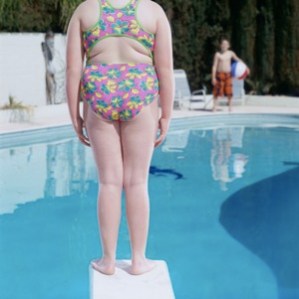
© PNC/Corbis
New research highlighted by the BBC and published in the Archives of Disease in Childhood suggests that the common understanding of the relationship between physical activity and childhood obesity may possibly present things in the wrong order. That is, while it’s a widely held belief — and premise of the First Lady’s Let’s Move campaign — that growing inactivity among children is one of the contributing factors to the obesity epidemic, investigators conducting the EarlyBird Diabetes Study suggest that decreased physical activity may actually be a symptom of obesity.
Researchers from the Peninsula Medical School in Plymouth, U.K., followed more than 200 urban school children for 11 years, routinely monitoring body fat and physical activity. And, according to the BBC, they found that:
“They found no indication that doing more physical activity had any effect on weight, but they did find that children who put on weight did relatively less exercise.”
The study authors posit that a combination of embarrassment and discomfort may deter children from getting exercise, and suggest the findings point to a need to shift more attention to nutrition — and put less emphasis on exercise — when it comes to battling childhood obesity.
Yet other obesity researchers said that the role of exercise cannot be oversimplified, and that it’s more likely the relationship between inactivity and overweight goes both ways — in other words, children who are less physically active are more likely to put on weight, but once they start getting heavier, that additional weight may deter them from exercise.
Speaking with the BBC, Dr. David Haslam from the U.K.’s National Obesity Forum says this latest study needs to be incorporated into the broader research on the many factors that influence and drive childhood obesity. And Haslam warned against overlooking the broader benefits of exercise, or oversimplifying the results to suggest that physical activity is a frivolous pursuit for children:
“The EarlyBird team really force us to question our comfortable assumptions regarding childhood obesity. What we, as clinicians must do, is nod reverently at their work, learn lessons from it, and re-appraise our own practices accordingly. What we shouldn’t do is take the paper at face value and allow lean children to be as lazy as they please, as that would be a catastrophic mistake!”

